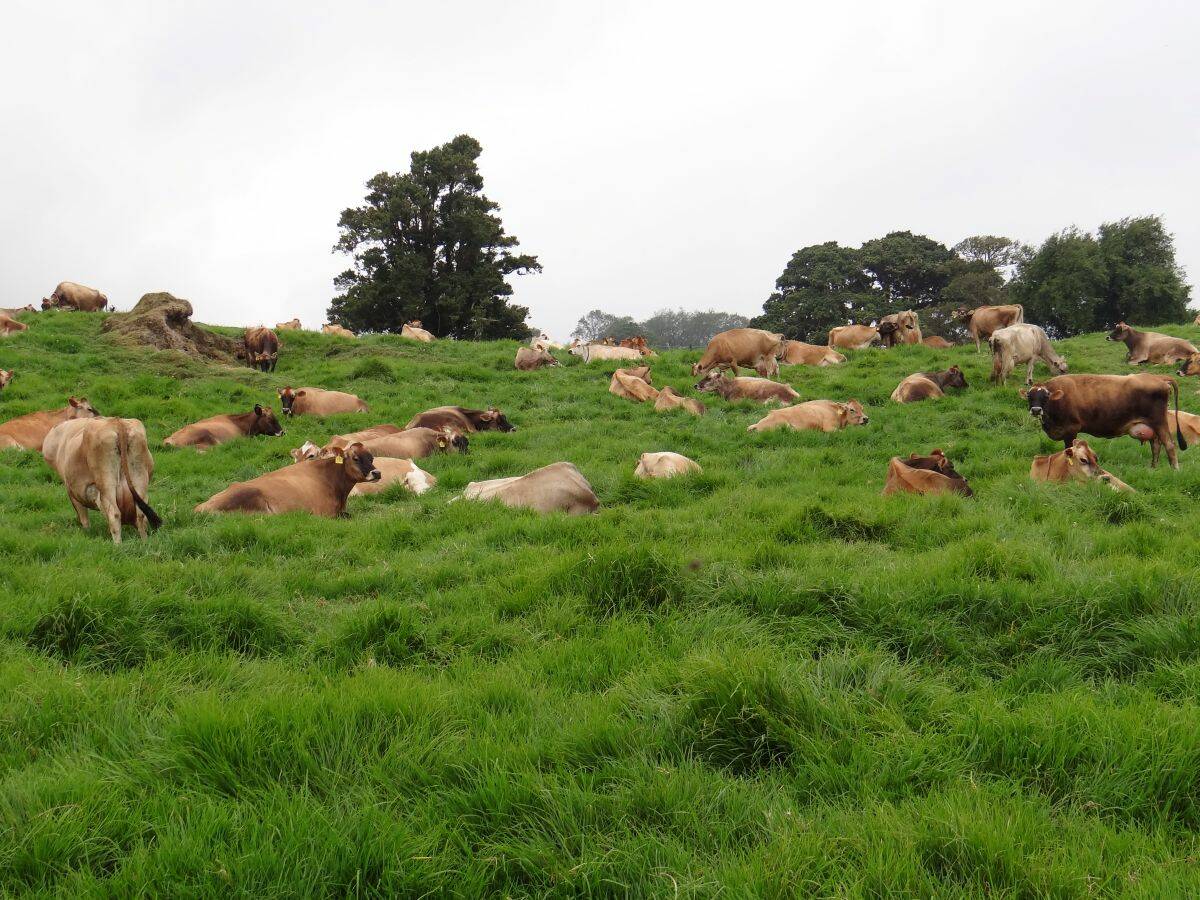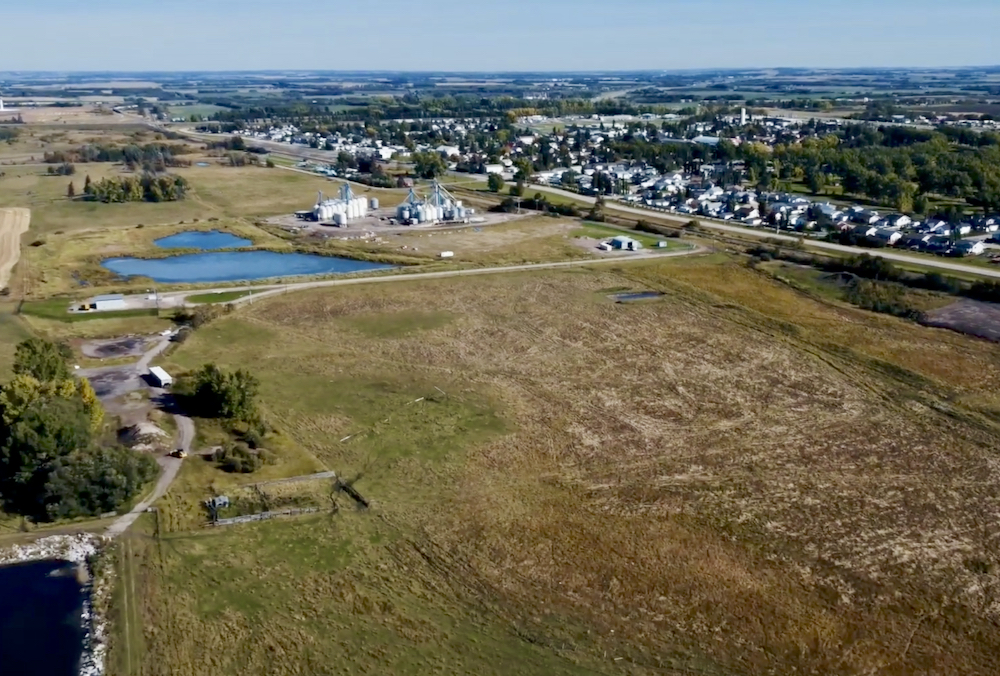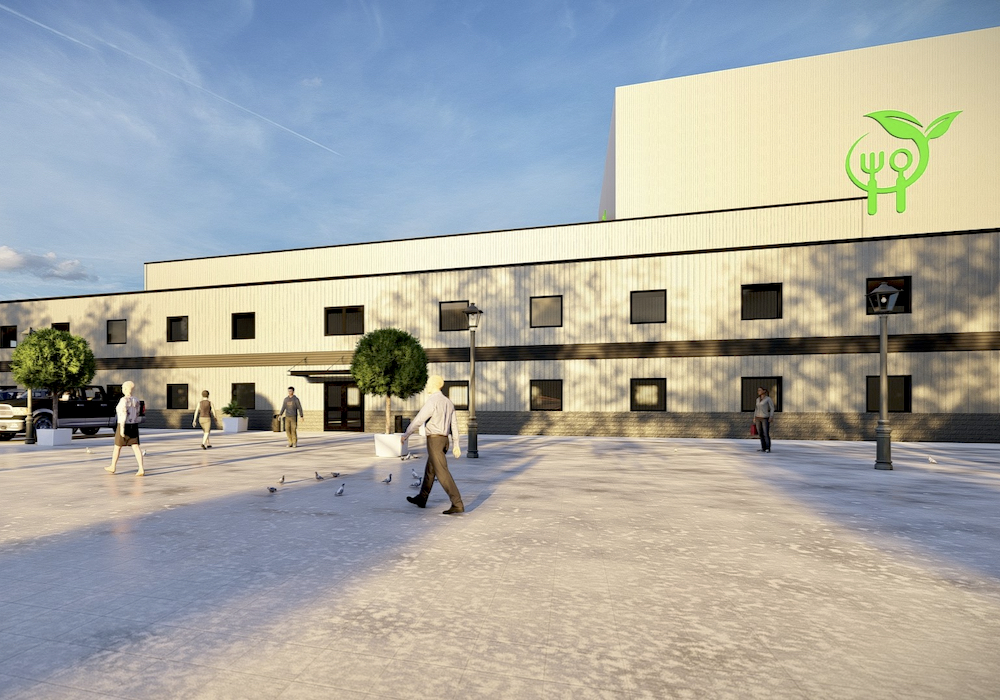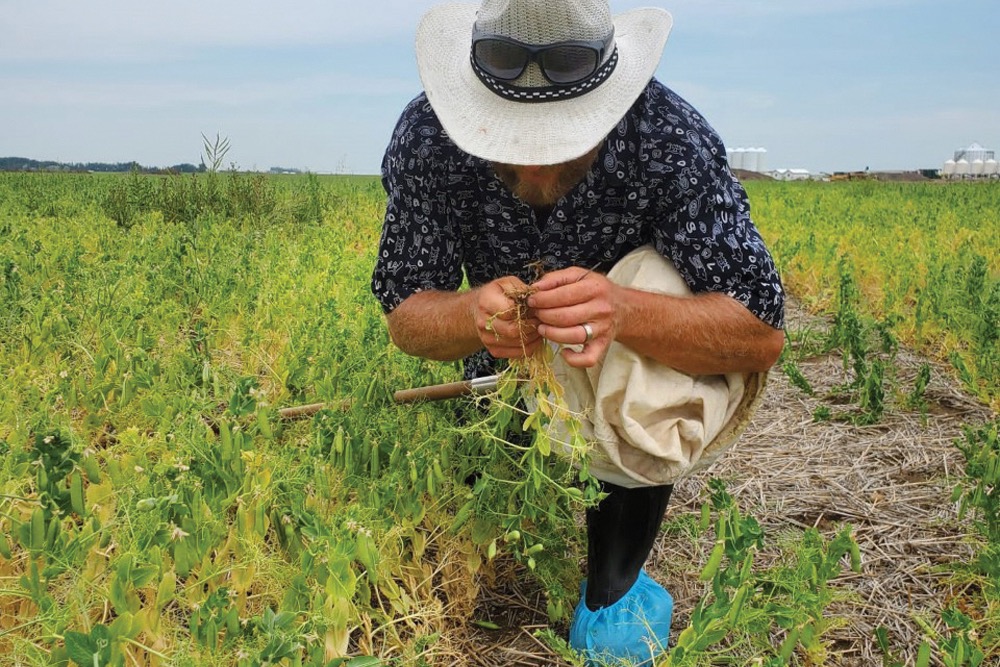It’s been a long time coming, but Alberta’s first wet fractionation plant is finally moving forward.
On Oct. 7, More Than Protein Ingredients broke ground on its new site near Bowden, which will be home to a $100-million plant-based wet fractionation facility once construction is completed in 2023.
“I think this was inevitable,” said pulse grower Allison Ammeter, former chair of the now-defunct Plant Protein Alliance of Alberta and current board member of Alberta Pulse Growers.
“We’ve seen all of this movement in the industry for the last five years, with some announcements in the other provinces, so it was inevitable that at some point, it would all come together for us too.”
Read Also

Is inflammation the real cause of milk fever in cattle?
UAlberta researcher Burim Ametaj’s theory challenges 200 hundred years of science and his work may change the approach for treatment.
That wasn’t always a sure bet, though.
“People have been watching to see if we would get to this point,” said Kevin McGeough, CEO of More Than Protein Ingredients. “At times, we didn’t think it would all come together, but it did. It was a great milestone to hit, especially in such a short time. The momentum seems to be picking up.”
The project, which has been in the works for over five years, faced some hurdles earlier this spring when W.A. Grain & Pulse Solutions — the driving force behind the plant — was placed into receivership. But the project has since moved ahead with new management and new investors following a first round of venture capital funding.
“We learned a lot on that first round,” said McGeough. “It took us a lot longer than we expected, but we feel we’ve overcome that hurdle and that for the next round, we should be able to move things forward relatively quickly.”
The second round of funding has already attracted major commitments from investors, including one from Canada.
“We feel that we’ll be able to maintain our Canadian ownership while leveraging the foreign investment that’s needed,” he said, adding that the groundbreaking was an important milestone for investors.
“This event gave us a milestone that I think people were looking for before going into the next phase of investment.”
It’s a similar story for other companies working on plant-protein processing in Alberta.
“There are other projects in Alberta that are inches away from doing the same groundbreaking,” said Ammeter. “It’s just a matter of everybody getting their investment dollars in line to move forward.”
Growing demand
And that’s likely to happen sooner rather than later as investors see the growing demand for plant protein around the world.
“There’s been a rapid growth in this. We’re starting to see retailers provide more shelf space for it as they start to realize the importance of having these alternatives,” said McGeough.
“We could easily sell our production a couple of times over by the time we’re done with the construction.”
One of the things driving that is the “complete supply chain breakdown that’s happening around the world,” said Ammeter. “It’s getting harder and harder to rely on global processing to get everything.”
Beyond that, investors are starting to look at products that are more local, with a smaller carbon footprint and shorter supply chain.
“They realize, especially this year with the disruption of transportation, that maybe it doesn’t make sense to ship your yellow peas to China and then receive them back as protein,” said McGeough.
“It’s going to be harder to justify a product that’s had to cross multiple oceans just to get to the final product.”
But it’s not just investors who are looking for that. Consumers are as well.
“People want to buy Canadian — and that doesn’t mean something grown in Canada, processed in China, packaged in Pakistan, and marketed by an American company. To them, that’s not made in Canada,” said Ammeter.
“The more we can do that’s made in Canada, the happier consumers are.”
That should all translate to increased demand for Alberta pulses, and an improved bottom line for pulse producers.
“Pulses have often played a rotational role, and for farmers here, this is the first connection right to the manufacturer that we’re seeing into higher-value products,” said McGeough.
“This demand will improve their bottom line once more manufacturers come on board.”
More Than Protein Ingredients has already begun work on its crop program, with the first trials starting this year.
“That was first on our to-do list back in May so that when we get into production, we have the farmers ready to deliver the quality and the specs that we’re looking for,” he said.
The trials, which were conducted on both irrigated and dryland acres, will form the basis for the contracts between the company and the pulse producers who will be growing for them.
“The crop program is focusing on producing better-quality pulses for our extraction, but also helping to improve the overall yields for the farmers so that they get more per acre,” he said.
And Ammeter is already looking forward to that day.
“Groundbreakings are exciting, but I can’t wait until we can actually haul a load of peas in there.”















